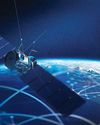
The world is facing worsening heat waves, droughts, and wildfires. These climate events significantly impact productivity and increase damage to infrastructure, especially in the telecommunications sector. This sector, with more than USD 1.45 trillion spent on it worldwide by service providers, is particularly at risk.
In 2015, Perth, Western Australia, experienced the effects of extreme heat on its telecom infrastructure. A population of 1.96 million was affected when the cable providing Internet to Perth melted, and a data centre ceased functioning due to temperatures soaring to 44°C. The partial failure of air-conditioning systems forced a DSL Internet service provider to shut down its servers, disrupting email and corporate websites.
Similarly, in 2019, during 'The Lucifer Heatwave,' extreme heat impacted data centres across Europe. In France, record temperatures of 45.9°C strained cooling systems in data centres. As air conditioning struggled to maintain optimal temperatures, servers overheated, risking hardware malfunctions. Consequently, several cloud services and websites suffered outages, impacting businesses and users throughout the region. In 2022, Google and Oracle's London-based data centres were forced offline when temperatures exceeded 40°C.
CHALLENGES AND SOLUTIONS
This story is from the August 2024 edition of Voice and Data.
Start your 7-day Magzter GOLD free trial to access thousands of curated premium stories, and 9,000+ magazines and newspapers.
Already a subscriber ? Sign In
This story is from the August 2024 edition of Voice and Data.
Start your 7-day Magzter GOLD free trial to access thousands of curated premium stories, and 9,000+ magazines and newspapers.
Already a subscriber? Sign In

Cloud endoscopy breakthrough for real-time remote diagnostics
NTT Corporation and Olympus Corporation have demonstrated the feasibility of real-time remote diagnosis and treatment using the world's first endoscopy system powered by IOWN All Photonics Network (APN) technology. The breakthrough experiment successfully processed endoscopic videos on a server located 150 km away, overcoming latency issues and enabling seamless diagnostics.

Rise of the homegrown telecom infrastructure
Telecom infrastructure, once led by US and European designs and made in China, iS Now increasingly designed and manufactured in India, marking a pivotal shift

Balancing innovation and regulation for a connected future
Crafting agile governance ensures equitable, sustainable growth, blending innovation with societal protection in a hyper-connected digital age

Driving transformative shifts towards digital leadership
India's telecom sector, driven by 5G, bold policies, and cross-sector collaborations, is paving the way to global digital infrastructure leadership

Scaling AI in data centres for the next big leap
GPU-optimised data centres are vital for advancing India’s Al ambitions, enabling it to meet growing computational demands and maintaining global competitiveness

Bridging gaps with AI's transformative communication wave
AI-driven real-time communication reshapes industries, enhancing connections, operational efficiency, and immersive experiences in a digital-first world

Weaving the fabric of CDN efficiency
Local peering transforms CDNs by cutting latency, boosting reliability, and ensuring seamless, high-speed delivery for modern digital experiences

From orbit to opportunity: Redefining connectivity
India's satcom sector is set to revolutionise connectivity through hybrid networks, bridging the digital divide and driving innovative technologies for growth

Orchestrating telecom's smart future
AI and automation can revolutionise telecom networks, crafting intelligent, selfoptimising systems to meet future demands and deliver seamless connectivity

Unlocking the true potential of IoT
Specialised silicon and 5G are set to redefine loT's future, driving AloT innovations that deliver real-time intelligence, security, and seamless connectivity